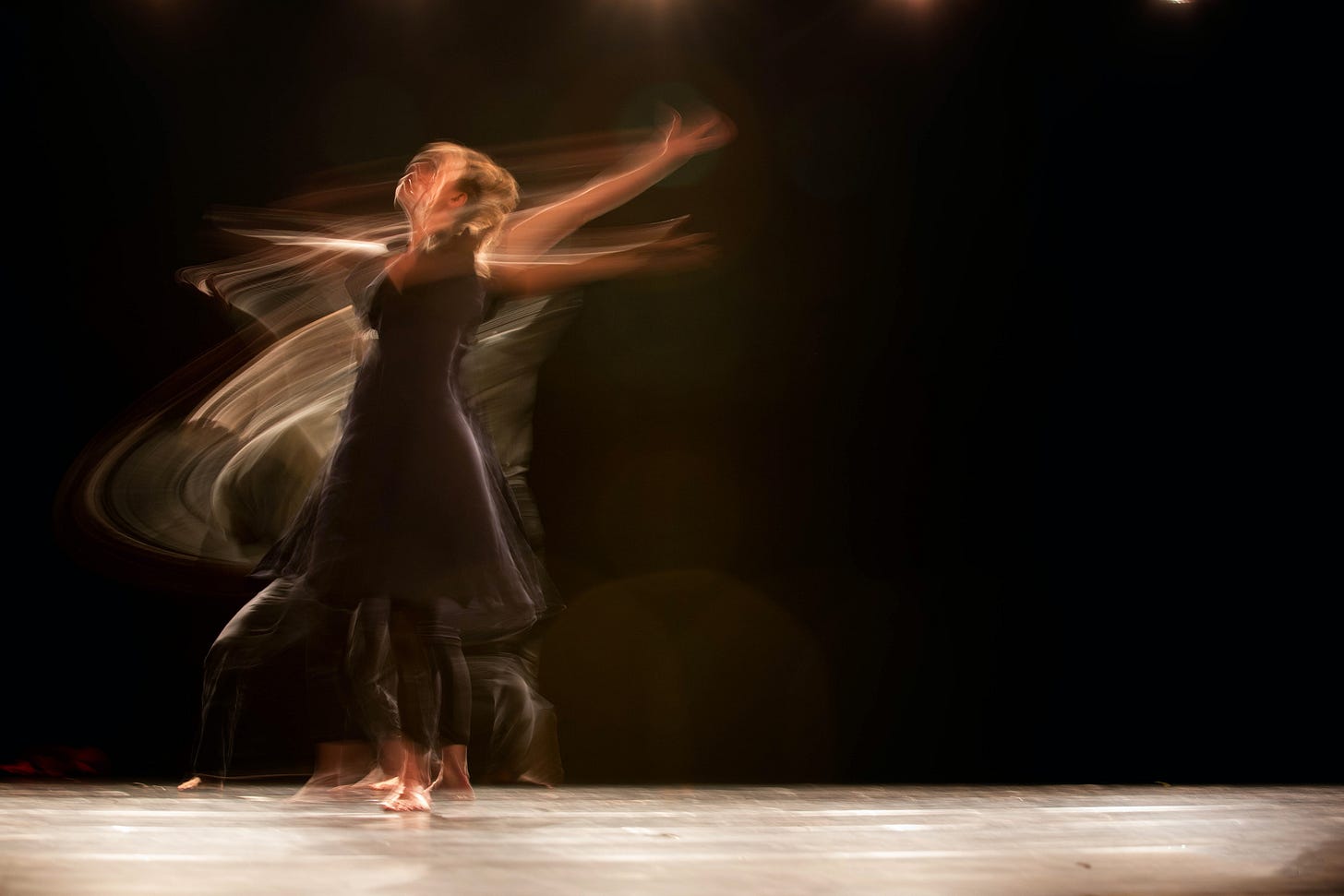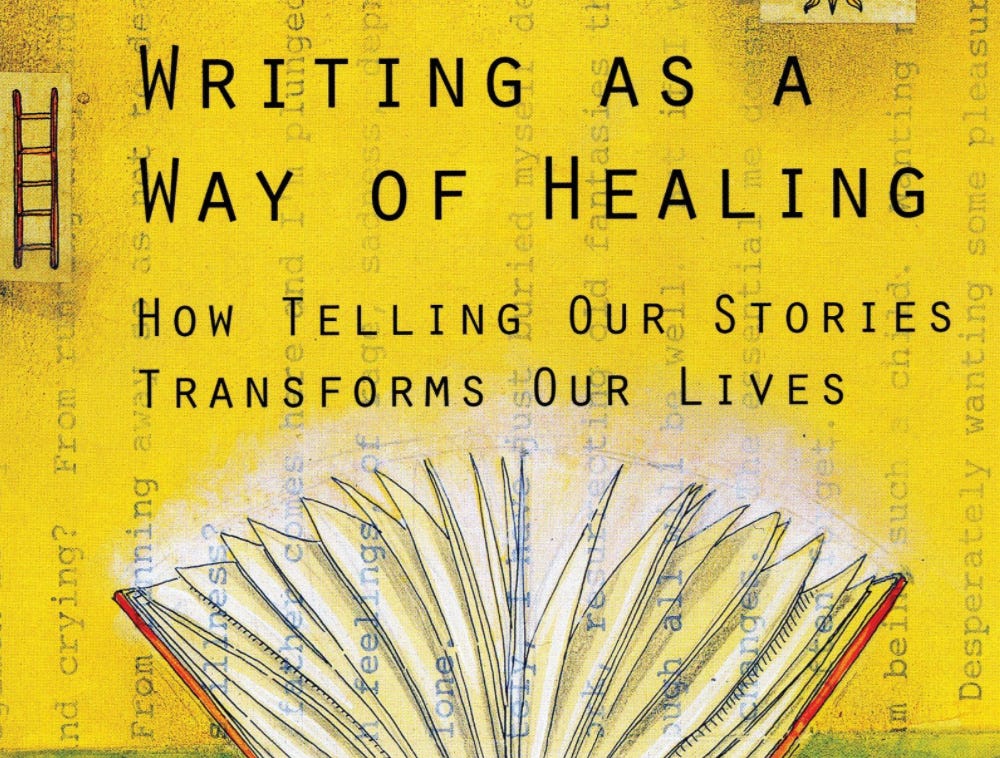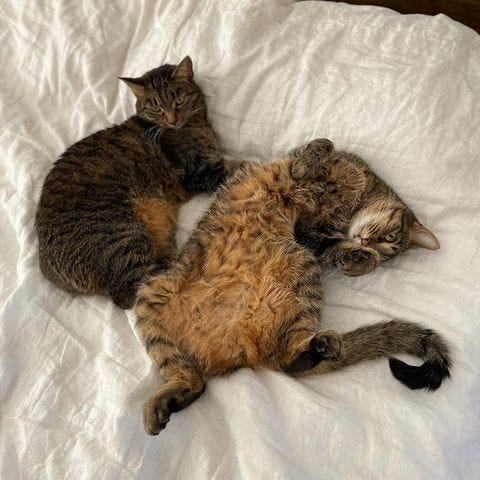Hi there! 👋 I’m Ida, and this is tiny driver, a newsletter about research, pedagogy, culture and their intersections. Thank you for being here. Reach out anytime by just hitting reply, I love hearing from you.
Hello, and welcome to the final issue of Au-Guest. This week, we are ending with a post from feminist healing coach and writer Nisha Mody. I met Nisha earlier this year at a Substack silent writing hour and decided to reach out because I loved the mission of her own newsletter, The Healing Hype! She does great work for others both on this platform and outside of it, which is why it’s so wonderful to feature her words in this space.
Thanks to everyone who participated in Au-Guest Month, and I’ll see you all next week!
Hey there! My name is Nisha Mody (she/her), and I’m a Feminist Healing Coach and Writer. I write The Healing Hype, a newsletter about healing + justice (because we can’t have one without the other). I also coach people one-on-one and in groups. I came to this work because I always did what I “should” do, especially as a child of Indian immigrants and as a woman. From these experiences, I eventually realized how far I got away from myself in order to meet the expectations that others, and myself, had for me. In reconnecting with who I truly am—through reading, dialogue with community, and listening to my body—I see how much capitalism, patriarchy, colonization, and white supremacy disconnects all of us from the land, each other, and ourselves. It’s my mission to help people reconnect and break generational cycles through healing and connection with themselves as well as relationships with others.
I just fulfilled a dream of leaving my 9-5 job to pursue coaching and writing full-time, whaaat???!!! I’m so excited for this journey, and I’m honored and grateful that Ida asked me to write for Tiny Driver during this new phase of my life.
What I write.
Writing was my first step into healing. Some time ago, two traumatic events happened within the span of a year: my father died and I asked my husband for a separation. Essentially, I had lost the two most important male figures in my life. Not only was this an emotional reckoning, but it was a political one too. I stepped into myself through writing about my divorce and the death of my father. Throughout my healing process, I couldn’t ignore how colonialism and patriarchy affected these relationships and the world at large, which led to the birth of The Healing Hype. I most recently wrote about how responsibility can be liberatory and about reclaiming that way I assimilated my name to American English on The Healing Hype. Processing through writing started a larger, more generative fire to take a closer look at my own wounds and how they are connected to the world.
To me, writing is about co-creation. One way I co-create is through the support of a writing feedback group which was created from a writing co-working space I once attended. We meet every couple of weeks to get feedback on drafts and even ideas. The members of this group write screenplays (everything from comedy to drama to animation), short stories, and novels. Through this experience, I’ve seen how people’s writing are extensions of themselves and where they are in their life. What are their struggles? How are they expressing them through writing? How is it a mirror to their own fears or insecurities? And how can we take feedback and truly embody it?

The word “embodied” and “embodiment” have been thrown around quite a bit, especially in the wellness world. And that includes myself, as a coach. When I talk about being embodied, especially with writing, I’m talking about actively reflecting and shifting my future behavior on how I receive suggestions and edits from others, which allow me to get deeper into myself and my conditioning—but not in a judgmental way. Since I’m a memoir writer, feedback I receive about my life is personal. If I were to receive suggestions in a disembodied way, it could look like passively responding to their comments, or ignoring the suggestion. An embodied approach to feedback, however, would look like receiving them in a loving and reflective way. I’d also try to apply their suggestions in my everyday life through slowing down, gratitude, and journaling. Not only will that support the particular piece I’m writing, but it will support future pieces and my life in general.
As much as I’d love for all my writing to be read and admired by everyone, it’s in the co-creation and embodiment that I feel most connected and fulfilled. And it’s in how others support the embodiment of my story that fills my heart. This also goes for the feedback I receive after I publish a piece, all of it helps and all of it is co-creation.
What I create.
Ida talks about what she teaches, which I see as a type of co-creation.
As a coach, I love to form relationships with my clients through co-creation. Whether it’s co-creating goals, their self-concept, or a personalized nervous system map, we are both taking part in it. And I truly feel that is what relationships do for us. They are a way to co-create while still being individuals. They intermingle our pain, our pleasure, and our beauty. And if we co-create with boundaries and consent, we come out of it blooming!
I also just completed a series of IG Lives where I talk about my values. It is so important to me to state my values and embody them in the work I do. I talked about why values matter, along with getting into it with each of my values: vulnerability, unlearning, curiosity + humility, compassion, connection, and liberation. Values are a beautiful way to know ourselves, understand how we complement others, and create boundaries.
When I spoke about these values, connection and liberation were the most powerful for me. Connecting is not only about the self, it’s about connecting to ideas, connecting to the land, and connecting to community. Connection itself is so important and hard-wired into us as human beings. We need each other, but we also need to not abandon ourselves. When we people please or even disconnect from our bodies, we are betraying ourselves. This isn’t usually intentional, it is generational and it is very conditioned by colonization, patriarchy, and white supremacy. As a woman of color whose parents immigrated to the United States from India, I feel ALL of these. But it doesn’t mean all hope is lost. It just means I have a better understanding of the “why,” and I can start to connect to myself more, which also brings us closer to the people who see us and accept our whole selves.
The practice of connection is directly connected to liberation, which is inherently about the collective. We are not free until everyone is free, and everyone includes Black trans folks and Black women. Securing my rights as a cis-woman are not enough because I’m part of something bigger. This is why I think liberation is so important, because we have a responsibility to each other and to the land we live on.
What I consume.
I just finished Power and Love by Adam Kahane. The work examines social change through power and love, as exemplified by this quote from Martin Luther King Jr:
Power properly understood is nothing but the ability to achieve purpose. It is the strength required to bring about social, political, and economic change….And one of the great problems of history is that the concepts of love and power have usually been contrasted as opposites -- polar opposites -- so that love is identified with the resignation of power, and power with the denial of love. Now we’ve got to get this thing right. What [we need to realize is] that power without love is reckless and abusive, and love without power is sentimental and anemic...It is precisely this collision of immoral power with powerless morality which constitutes the major crisis of our time.
This framework of power and love was very new to me, and really reframed several organizations and initiatives I’ve been a part of. I have always felt like power and hierarchy were evil. But we need leaders, and I appreciated how this book admitted the challenges of becoming a leader who can employ love in a system that is often supremacist. With that being said, I was able to see how the leaders I have admired like Angela Davis, Grace Lee Boggs, and Yuri Kochiyama have a beautiful capacity to harness power and love. While my politics didn’t always align with Kahane’s, I still found this book to be a supportive lens on social change.
I usually read a couple of books at a time. I’m currently finishing up How We Show Up by Mia Birdsong and Parable of the Sower by Octavia Butler. I also started Trauma-Sensitive Mindfulness by David Treleaven which looks at how meditation and mindfulness isn’t always a panacea, specifically for those who have experienced trauma.
What is up next? Well this is up in the air. I like to see what feels good in my body after I finish a book. But my options are Beyond Survival edited by Ejeris Dixon and Leah Lakshmi Piepzna-Samarasinha; Set Boundaries, Find Peace by Nedra Glover Tawwab; or The Art of Gathering by Priya Parker. Feel free to comment if you have a fave!
As you can sense, I stick to books about trauma and community, lol! However, I love a good memoir! I’ll probably read Strung Out: One Last Hit and Other Lies That Nearly Killed Me by Erin Khar for my next one.
[Programming note from Ida:] For August’s book club (which is TOMORROW!), we will be reading Writing as a Way of Healing by Louise DeSalvo! Thank you to everyone who voted, and feel free to purchase a copy of the book here! Details are below.
Here’s the event info:
Date & Time: Tuesday, August 31 @ 5PM PST/8PM EST
Registration Link!
Suggested donation (for those able to donate): $3-20 through Paypal or Venmo (@idyalz)
Item(s) of note.
I recently spoke about the importance of connecting with ourselves, especially in the context of our self-worth, on Anya Cherrice’s podcast “Navigating Culture”. I talked about how capitalism and colonization tell us we are unworthy, and how, as immigrants and children of immigrants, we have internalized this to a dangerous point of burnout. This was an incredible co-creation, and I loved how Anya put it together!
Speaking of podcasts, this interview with ALOK on “For The Wild” was incredible, and I really enjoyed watching Ijeoma Oluo’s IGTV about healing. I recently read a review of the new Netflix series The Chair, written by an Asian American woman who has previously chaired a sociology department. I haven’t watched the series yet, and considering I just left academia, I’m not sure if this will be validating or triggering (probably both). Either way, I’m looking forward to watching it at some point in the future.
A cat-date.
Here are my beautiful sister cats, Sonya and Vera, being coy, cute, and seductive.









How We Show Up by Mia Birdsong was one of my best books for 2020. And The Art of Gathering by Priya Parker is amazing (totally changed my work life, which involves a lot of event planning and gathering of other kinds).
This was a fun interview -- thanks!